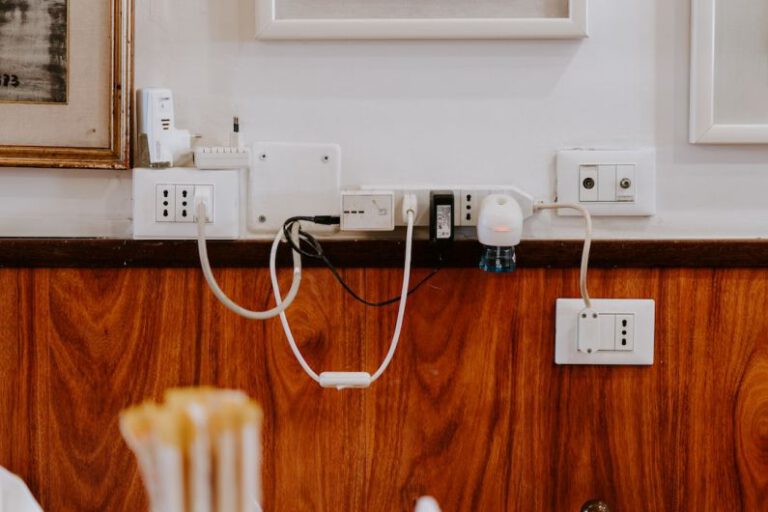Tips for Compact Storage of Home Office Equipment
Working from home has become increasingly common in recent years, and with the current global pandemic, more people than ever are converting a spare room or even a corner of their living space into a home office. However, limited space can often be a challenge when it comes to storing all the necessary equipment. In this article, we will explore some practical tips for compact storage of home office equipment.
Utilize Wall Space
One of the most effective ways to maximize storage in a small home office is to utilize wall space. Install shelves or floating wall-mounted units to store books, folders, and other office supplies. This not only keeps everything within reach but also saves valuable floor space. Additionally, consider mounting a pegboard on the wall to hang frequently used tools such as scissors, rulers, and pens. By taking advantage of vertical space, you can free up valuable desk space for other essential items.
Invest in Multi-Functional Furniture
When space is limited, it is essential to make the most of every piece of furniture. Look for desks or storage units that offer multiple functions. For example, choose a desk with built-in drawers or shelves to store files, stationery, and other office supplies. Alternatively, consider investing in a storage ottoman or footstool that can double as a seat and provide hidden storage space. By using furniture that serves more than one purpose, you can save space and keep your office organized.
Use Cable Management Solutions
Cables and cords can quickly become a tangled mess, taking up valuable desk space and creating a disorganized appearance. To keep your home office tidy and efficient, invest in cable management solutions. Use cable clips or adhesive cable holders to secure cables to the back of your desk, preventing them from getting tangled or falling down. Additionally, consider using cable sleeves or zip ties to bundle cords together, further reducing clutter. By implementing these simple solutions, you can maintain a clean and organized workspace.
Optimize Drawer Space
Drawers are an excellent storage solution for small home offices, but they can quickly become chaotic if not organized properly. To optimize drawer space, use dividers or small containers to separate items such as pens, paper clips, and sticky notes. This will not only make it easier to find what you need but also prevent the drawer from becoming a cluttered mess. Additionally, consider using drawer organizers for larger items like notebooks or files. By maximizing drawer space, you can keep your office essentials neatly stored away.
Create a Filing System
Paperwork can easily accumulate in a home office, taking up valuable space. To avoid this, create a filing system that allows you to keep important documents organized and easily accessible. Invest in a file cabinet or portable file box to store paperwork such as contracts, invoices, and receipts. Use labeled file folders or hanging file organizers to categorize and sort your documents. By implementing a filing system, you can free up desk space and maintain a clutter-free environment.
In conclusion, creating a compact storage system in your home office is essential to maximize productivity and efficiency. By utilizing wall space, investing in multi-functional furniture, using cable management solutions, optimizing drawer space, and creating a filing system, you can effectively store all your home office equipment in a compact and organized manner. With these tips, you can transform your small home office into a functional and clutter-free workspace.





